School to Recognize 147 Graduates at Fall Commencement Ceremony on Dec. 16
Columbia, Mo. (Dec. 8, 2011) — The Missouri School of Journalism will recognize its 147 December graduates during commencement ceremonies on Friday, Dec. 16. The ceremony will take place at 6 p.m. in Jesse Auditorium. Tickets are not required, and seating is open.
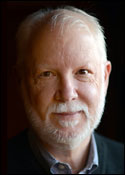
Graduate degrees will be awarded to five doctoral candidates and 51 master’s students, 14 of whom earned their degree online. Eight of the online students are part of the special Command General Staff College at Fort Leavenworth.
Of the 91 undergraduates, 39 studied strategic communication; 14 each in magazine journalism and radio-TV journalism; 11 convergence journalism; eight, print and digital news; and five, photojournalism.
This year’s graduating class includes seven Walter Williams Scholars. The program was created in 2004 in honor of the School’s founding dean, Walter Williams, and recognizes the highest-achieving incoming journalism students at Missouri. Graduating Walter Williams Scholars will wear a red honor cord with their academic regalia.
Overall, 34 graduating seniors will be recognized with Latin honors. These students have at least a 3.5 grade point average for their last 60 graded MU credit hours.
The top 10 percent of the School’s graduates will be inducted into Kappa Tau Alpha, a journalism honor society founded at the Missouri School of Journalism in 1910. Its goal is to unite students with exceptional achievement from the nation’s leading journalism and mass communication schools. The ceremony and reception for the 20 inductees will be held prior to the Dec. 16 graduation ceremony from 2 to 3:30 p.m. in 100-A Reynolds Journalism Institute.
Kappa Tau Alpha Inductees
MA Students
- Erica Mendez Babcock
- Caitlin Giddings
- Tiffany Jackson
- Laura Catherine Johnston
- Kathryn L. Kelly
- Andrew C. Kim
- Elizabeth A. Lance
- Jacob Luecke
- Kyrsten Elaine Skulborstad
- Kelsey Nicole Whipple
- Amanda Woytus
BJ Students
- Aaron Joseph Andersen
- Katelyn B. Eichner
- Bradley J. Galbreath
- Georgia Faye Gonder
- Xin He
- Hannah Huber Jones
- Sean Leahy
- Emily Smoucha
- Megan Stroup
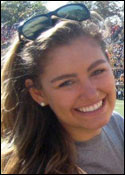
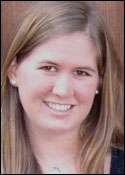
The alumnus speaker will be Randy Cox, BJ ’75. Cox is the director of visual journalism at The Oregonian in Portland. He oversees the newspaper’s photography department for both print and online with their affiliated site, Oregonlive.com. Cox joined the staff of The Oregonian in 1997 after more than 20 years managing photography, design and editorial work at six previous newspapers.
Cox served as editor for the annual Pictures of the Year competition book five times and as a judge at the Society for News Design, College Photographer of the Year and the White House News Photographers Association competitions. Cox is a frequent faculty member at various photojournalism and design workshops around the country. In 2003, he received the National Press Photographers Association‘s Clifton C. Edom Award. Edom founded the School’s photojournalism area of study as well as helped create POYi and the Missouri Photo Workshop.
The student speaker will be Rebecca Berg, a magazine journalism and political science dual major from of San Diego. She is a Walter Williams Scholar and will graduate with an Honors College Certificate. Berg reported for and later served as an assistant city editor for the Columbia Missourian. She also has worked as an intern at The New Yorker magazine, the St. Louis Post-Dispatch and CBS News in London. She has also held leadership positions for the MU chapter of the Society of Professional Journalists, the Journalism Students Council and Kappa Alpha Theta fraternity.
The Master of Ceremonies will be Megan Stroup, a magazine journalism and history dual major from Himar, Calif. Stroup is a Walter Williams Scholar and will graduate summa cum laude with an Honors College Certificate. Stroup was selected for the Mizzou 39 Class of 2011, tapped into Mortar Board National Honor Society and was a Homecoming Royalty Top 30 member. She was also the president of Alpha Delta Pi and a facility lead at the MizzouRec student recreation complex. After graduation, Stroup will begin an internship at Outside Magazine.
Additional information about the commencement ceremonies is available from the MU Commencement website. Cox and Berg’s speeches will be available on the School’s website after commencement.
Alumnus Speaker
Randy Cox, BJ ’75
Dec. 16, 2011
Congratulations, graduates, all 147 of you. You all have much to be proud of and much to look forward to. Thanks for inviting me, Dean Mills and Professor Rees. It’s a great soapbox to stand up here and, I admit, a bit unnerving.
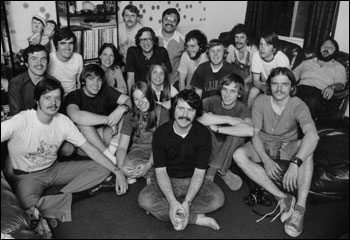
I’ve been sweating for months now what I could say to you that would be of some value and not put you to sleep. I even asked some of you in this audience what you’d most like to hear.
Photojournalism graduate Katy Mooney wrote me that most useful for her would be “something funny and reassuring.”
Convergence classmate Krysta Brown asked for a “bottom-of-the-barrel story in great detail. Yours, if you have one, Mr. Cox.”
Print and digital news graduate Emily Smoucha gave me better ideas of things not to say. She wrote, “By that I mean there are several ideas that have been drilled into our heads over the years, so that at this point, we sort of roll our eyes and tune out what is said.”
I also looked at recent grad speakers here. I listened to Steve Jobs exhort Stanford grads so many times I didn’t want to listen to him anymore. And I even dug up a 1960’s very-grainy video of JFK speaking to an American University class.
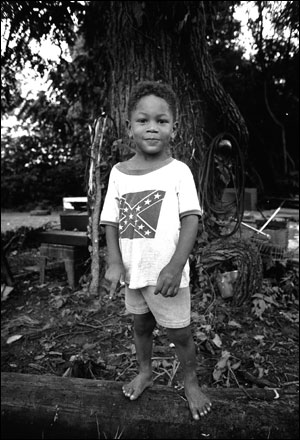
All rousing stuff, filled with the sentiments of “you’re the future,” “the sky’s the limit,” and “you’re only held back by the limits of your own imaginations.”
Finally, I convinced myself that I couldn’t give you any cheerleading better than others have and, at least in my quick research the last month or so, the vast majority of college grads don’t even remember who spoke much less what they said.
So, instead, I’m going to talk about what I know best: some stories from my life after Mizzou and some of the things I’ve learned. So, if you will…
It was 36 years ago that I, too, graduated from this school with a spanking new BJ, ready to tackle the world as a photojournalism graduate. This photo was made the year before graduation. Yeah, a pretty male-dominated group back in those days. You might recognize Professor David Rees on the far left and Professor Mike Jenner behind him in the white T-shirt. I have no idea what’s become of some of these classmates. Unfortunately at least two have passed away, but others remain good friends.
A year later, in December of 1975, I didn’t attend my graduation ceremony. I was in too big a hurry to get started on my first job. It was a job I’d accepted over the phone in the old photo lab down in the basement of Neff.
In fact, it never dawned on me that perhaps I really should visit The Clarion-Ledger before accepting the job as a staff photographer. It was the largest newspaper in Mississippi, and the job paid $150 a week. I imagined making photos that would make a difference in the Deep South.
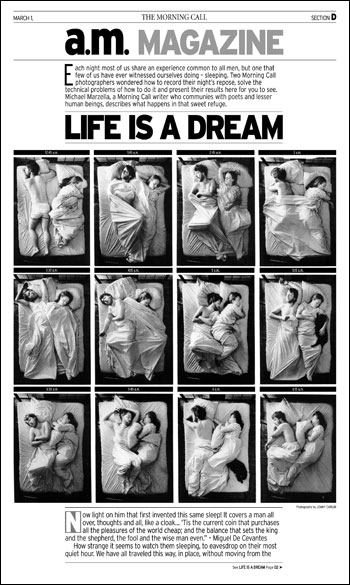
I quickly learned I was a rather naive 22-year-old from Kansas after all. A few months into the job, another Mizzou grad and I were on assignment in the Mississippi delta. It was a story about how the county supervisors were paving their own pockets with county monies at the expense of many in the community, especially the black community. We were trying to do some interviews in the poorest community we’d both ever seen, and I was waiting for my opportunity to begin making photos in the muddy front yard of an elderly woman we hoped would invite us into her home.
Then, I heard a stick crack behind me. When I turned around, I saw this little boy standing on a log looking at me curiously with that slight grin.
To this day I can still remember the feeling that I couldn’t believe what I was seeing. I was so afraid this amazingly out-of-place image was going to evaporate before I could make the photo.
A week or so later, as we were putting the story together for the paper, the shock came. An editor at the paper told me the photo wasn’t appropriate and would never be published in The Clarion-Ledger. I was crushed.
I learned the hard reality that decisions made about photos, at least back then, were sometimes made without believing that photography was also reporting. Most of the paper’s editors thought photography was mostly an afterthought.
That experience made me want to be an editor, and my career soon drifted in that direction. My next job was as a photo editor at a small southeastern Kansas daily and then it was on to be the first picture editor at The Morning Call in Allentown, Penn., where my wife, Joany Carlin, BJ ’76, took a job as a staff photographer, too.
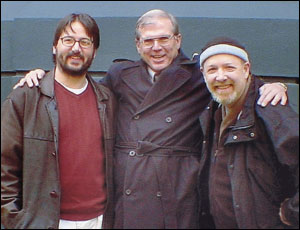
Most of our friends told us they thought we were nuts going to work there. “Randy, have you seen what they do with photographs there? They cut them out and lay type on top of them.” I could hear Professor Angus McDougall whispering in my ear how wrong it was to treat photography that way on a newspaper page. But it turned out to be one of the best decisions we ever made.
This page, on the first day we launched a new features section at The Morning Call, was one of many single-topic pages we experimented with. The top editors had decided they wanted something different and dramatic to open this section.
“Let’s see what people look like during the span of one night’s sleep,” Joany, suggested one afternoon before the launch. “Perhaps, we could photograph ourselves.”
It took five nights, a lot of duct tape and some careful editing to get these twelve photos of us – and Frito the kitty – for that debut cover. It was bold at the time, and we still see versions of these time-lapses being published elsewhere even today.
Taking the job in Allentown and publishing such a personal story was the right thing to do. It stuck in my head that I ought to do that more often.
Allentown led to nine years at The Hartford Courant, and then we moved to Albuquerque, N.M., when it was Joany’s turn. Then, still heading west, we relocated to The Oregonian in Portland where we both accepted editing positions.
That’s where this photo was made. That’s me with two colleagues from the paper. About a month earlier, on Friday, Jan. 11, 2002, I was walking to work, worried if our contest entries that we’d shipped at the last minute would make the deadline in Syracuse. I had a cigarette in my hand and that stupid hat on.
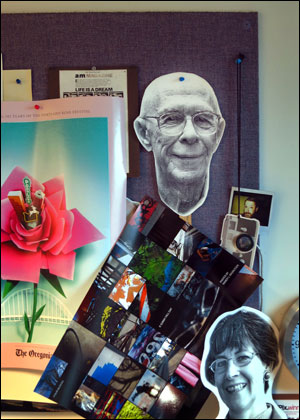
Two days later I woke up in the hospital, with a new stent in my chest and a group of cardiologists eager to install a defibrillator there as well. Those two co-workers – Jack Hart and Mark Larrabee – saved my life by knowing enough to perform CPR. They’re the only angels I’ve ever known.
Again, an experience with some strong lessons:
- Don’t smoke cigarettes.
- Journalists often know how to do many, very useful things.
- Life can be short, and the clock is always ticking.
Now, 10 years later, I’m still learning from the amazing journalists I’ve been lucky enough to work with across seven newspapers. They’ve taught me these things I know for sure:
- The future isn’t really predictable so you’ve got to be ready for the unexpected.
- The need for journalism is never going to go away. It’s just going to continue to change – as it always has – and as the world grows bigger, as technology morphs and as the education of the next generation improves.
- This school and the people it produces will pay you dividends your entire life. Trust me, you made a great decision choosing Mizzou.
I still think of my time on this campus all those years ago fondly and especially my time under Professor Angus McDougall. We called him “Mac,” and he worked his way into my head and that of many dozens of other photojournalists.
I can hear him to this day admonishing us about how hard we’d need to fight to stay relevant in our newsrooms filled with people who believed words were more important.
Mac passed away a couple of summers ago here in Columbia, but what he taught will remain with me always as does this photo on him on the wall in my office. I look up at him often, as I sit in front of the computer for too many hours most days. Often, I still filter decisions through “What would Mac think?”
I can tell you this: He’d say that telling stories is the most important part of journalism. Tell them well, tell them truthfully and tell them because they need to be told.
So, my best wishes on your trip through journalism. It’s a noble, essential and exciting profession you’ve chosen. It wouldn’t be any of those without challenges. So, tell those stories and enjoy the ride. I can’t wait to watch now that it’s your turn.
Student Speaker
Rebecca Berg, BJ ’11
Dec. 16, 2011
Good evening, and a warm welcome to the families, friends and faculty here tonight. On behalf of my graduating class, I thank you for being here to support us as we enter the real world – or, more accurately, perhaps, as we move back home.Seeing all of these families here, I am reminded of one of my favorite journalism sayings, which was repeated in classrooms and dorm rooms ad infinitum during my freshman year:
“If your mother says she loves you, check it out.”
We are professionally trained skeptics, all of us.
And yet, one of the guiding tenets of our education conveys exactly the opposite idea:
“I believe in the profession of journalism.”
So goes the first line of The Journalist’s Creed, written by this school’s founding dean, Walter Williams.
It is a beautiful affirmation, but not an easy one for a classically trained reporter to accept – because belief is, by definition, a religious sort of faith, founded less in fact than in one’s gut feeling. Yet this school asks that we, society’s greatest skeptics, believe.
That expectation is perhaps more a reflection of the human condition than it is of journalism. As people, we all desperately want something to believe in, so that we may comprehend those things that we cannot see or feel, and to help us make the cognitive leap from what is known to what is not.
Contrary to what we might think, though, belief is not absent in journalism. In fact, it is crucial to it.
Consider the process of reporting:
We conduct research, interview sources, comb through data and request documents, all in search of some greater truth that we can then write about. In the end, we emerge with a story: A rough amalgamation of the facts we gathered, stitched together by the threads of objectivity and our professional judgment. In journalism, as in life, the truth is an approximation of our own creation, influenced as much by what we know as by what we believe.
I know that’s exactly what we’re not supposed to say: That we, as journalists, affect the stories we report.
But journalism, the kind that we can believe in, is inherently driven by the passion of its reporters. Stories that inspire in us neither curiosity nor emotion will be, without fail, mediocre. And our readers and viewers expect better, as they should.
Cynical though we as journalists may be, I think that my peers, the graduates here tonight chief among them, know what it means to believe in something. We are also painfully familiar with the alternative.
Around the time we entered college, a lot of people in powerful positions believed our country’s economy was, relatively speaking, infallible. Even when the fragile equilibrium was upset, there was still a pervasive belief that the world would right itself.
Instead, it falls now upon us, as journalists, to help right the world.
But there is reason to believe that we can, because even as society’s shortcomings have reinforced our professional doubt, this school has taught us to trust in ourselves.
Here, we have learned to seek out the facts. We have been urged to question authority, our sources, and our judgment. And we have been encouraged to think critically – because, as the arch above the journalism school reads, “The wise shall be the bearers of light.”
At the Missouri School of Journalism, we have given all of ourselves to our craft – even as this thankless, stress-inducing profession has spat in our face and dared us to give up.
On a typical day, a class could demand of us a print story, an extended online version, an audio slideshow or a quick hit for KOMU – oh, and I’m going to need that in an hour, thanks.
Add to that the daily stresses of training to work in an industry that doesn’t even know what it wants to be when it grows up.
Given these realities it is incredible, perhaps, that we are all still here – except that we hold an intense belief in this profession. Belief, you see, is not a passing whim or even rational; instead, it is something rooted so deeply in the fiber of our beings that we couldn’t break free if we wanted to.
And why would we ever want to?
Many of us here don’t know where we will land after tonight, but I don’t think that matters. Wherever we go, and whatever we end up doing, we will be products of this school and its values.
We will be skeptical, of course. We will be persistent. We won’t always know who to believe, but we will always believe in the profession of journalism. And we will believe, foremost and forever, in ourselves.
Congratulations, graduates. As David Foster Wallace once said, “I wish you way more than luck.”
Updated: June 4, 2020